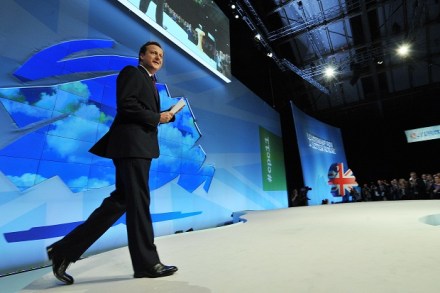Lib Dem conference: Dr No tells party activists that he loves blocking popular policies
Nick Clegg’s speech was supposed to be about how the Lib Dems are the modifying party. They stop the nasty Tories doing lots of nasty things, and under different circumstances, they’d stop Labour being incompetent. The text of the speech suggests that Clegg is trying to say that what the Lib Dems stand for more than anything else is better government: that is, government that doesn’t do mean or incompetent things (both of which are judged by the moral compass of the junior coalition partner, of course). He closed his speech by saying: ‘In the past the Liberal Democrats would eke out an existence on the margins of British politics.




















